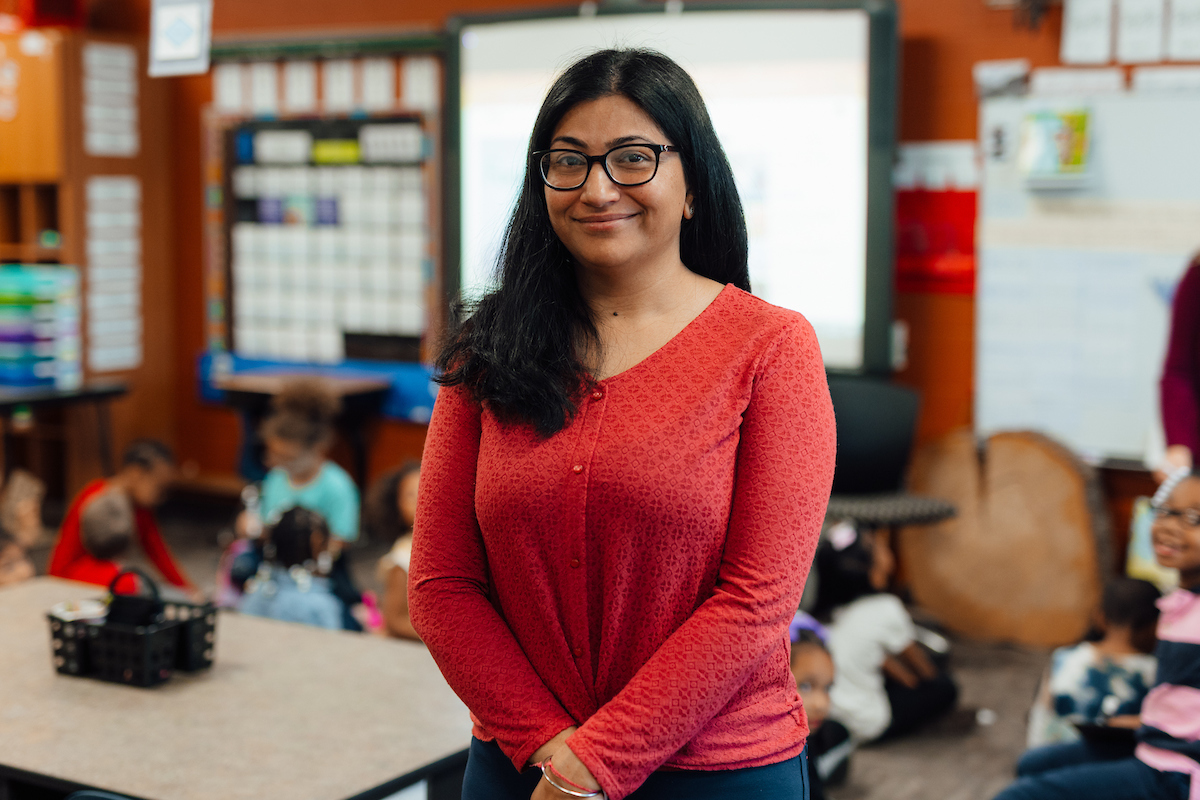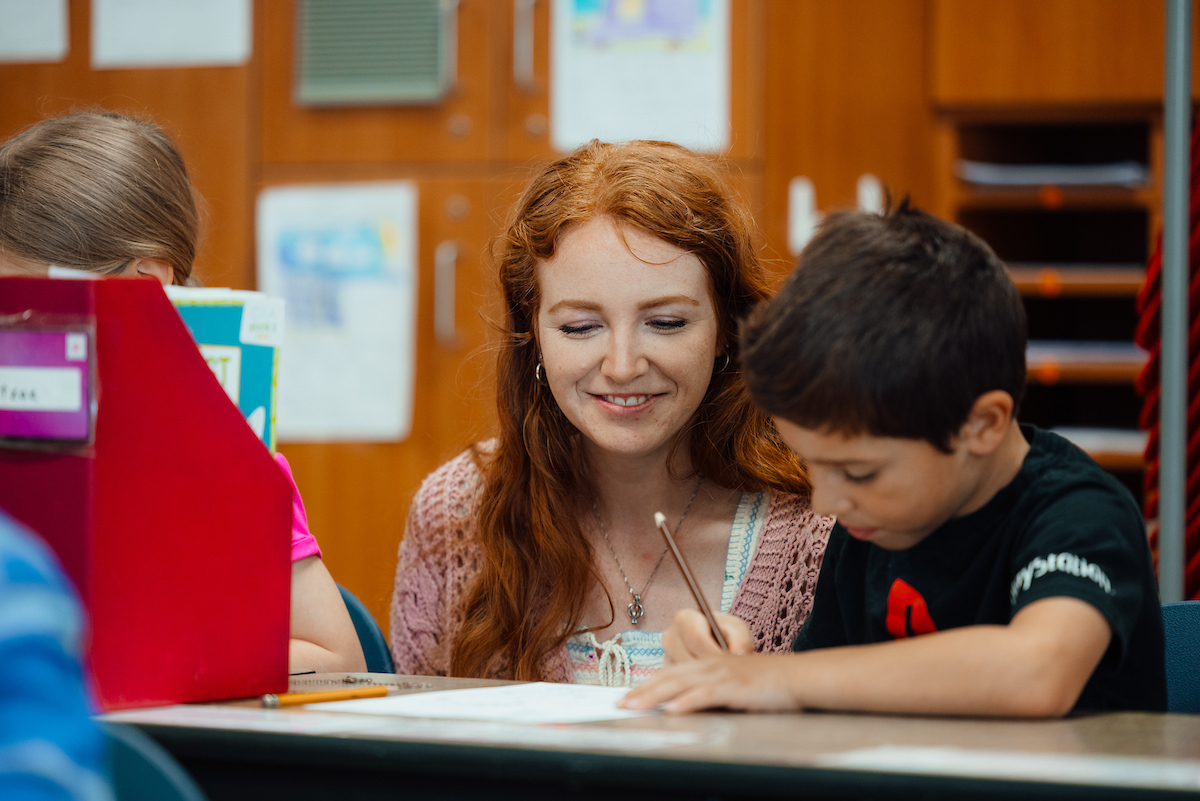Grow Your Own School Psychologist Program
Educational Specialist (EdS)
Be part of the solution to address school mental health needs through the Grow Your Own School Psychologist program. a grant-funded program administered by Green Hills Area Education Agency (AEA), with educational support of the UNI School Psychology Program.
This program supports the training of additional school psychologists in rural settings in Iowa in partnership with these Iowa Area Education Agencies:
- Central Rivers AEA
- Grant Wood AEA
- Great Prairie AEA
- Green Hills AEA
- Heartland AEA
- Northwest AEA
- Prairie Lakes AEA
If you have at least a bachelor’s degree, you work in education or a related field in the service area of one of these AEAs, and if you are committed to serving high need rural school districts, this program may be for you. Twelve candidates are funded over the next two years, for this hybrid/online (3 to 4 years) delivery program.
As a partner in supporting this program, UNI's School Psychology Program draws on its expertise as Iowa's leader in preparation of licensed school psychologists.
AEA Partners, Immediate Employment
Working with Central Rivers, Grant Wood, Great Prairie, Green Hills, Heartland, Northwest, Prairie Lakes AEAs
Hours of Practicum Experience
Hands-on experience every semester

NASP Approved
Accreditation reflecting quality of Iowa's leading school psychology program
About the Program
Admission
We look for evidence of the ability to complete an academically rigorous program, skill in data analysis and interpretation, interest in mental health and successful experience working in teams and with/for children and youth.
- New cohorts: Starting May/June 2026 and May/June 2027
- Apply at: apply.uni.edu under EdS program
- Application opens in December
- Admissions decisions around March 1, 2026
The Need
School psychologists are a unique and often untapped resource for students. The National Association of School Psychologists (NASP, 2020) recommends one school psychologist for every 500 students. Data gathered from Iowa’s nine AEA directors of special education suggest that the ratio of students to school psychologists across Iowa is 1:1,734.
- Central Rivers AEA has a school psychologist-to-student ratio of 1:1,782
- Green Hills, 1:1,657
- Great Plains, 1:3,156
- Grant Wood, 1:2,200
- Heartland, 1:2,062
- Northwest, 1:2,957
- Prairie Lakes, 1:7,857
The Grow Your Own program is an opportunity to make genuine progress in improving mental health access for children and adolescents in high need, rural areas in western, central and southern Iowa.
Funding
The Grow Your Own School Psychologist Program began with grant funding received by Green Hills AEA, supporting two initial cohorts of nine total students. The school psychology faculty received an additional $2.5 million in grant funding in 2023 from the U.S. Department of Education to allow for continued growth of the program supporting three additional cohorts of five students each with the current group of AEAs. Green Hills AEA successfully received new grant funding of $2.8 million from the Department of Education in 2025 to support the upcoming cohorts.
Interested? Request information.
We will gladly send you more information on the Grow Your Own program if you request it.
Contact us directly at:
School Psychology Program
525 SEC
Cedar Falls, IA 50614-0607
Email: david.vanhorn@uni.edu
Courses and Careers
Courses
The Grow Your Own School Psychologist program is a hybrid/online program that consists of the final educational specialist (EdS) degree based on a scientist-practitioner model. Students entering with a BA will take courses for three years. Students entering with an MA can transfer up to 22 credits of their graduate coursework which can decrease coursework requirement to two years. All students will complete a fulltime internship during their final year in the program.
The Grow Your Own EdS in school psychology includes two practica, a full-time internship and written and oral comprehensive exams. Courses include:
- Introduction to School Psychology
- Academic Assessment & Interventions
- Program Evaluation
- Individual Intellectual Assessment
- Special Education Law & Policy
- Behavioral Intervention in School Settings
- Systems Level Consultation
- Early Childhood Assessment & Intervention
- Counseling Intervention in School
Careers
School psychologists are in great demand and often work in K-12 public schools. With this Grow Your Own program, you will commit to working three years within a high need rural school district within the AEA that is supported by the program: Great Prairie, Central Rivers or Northwest Area.
Other settings in which you may practice in the future:
- Preschools and other early childhood settings
- Colleges and universities
- School-based health and mental health centers
- Community-based day treatment or residential clinics and hospitals
- Juvenile justice programs
Frequently Asked Questions
- How often and at what time do courses typically meet? In person or via Zoom?
Most classes are online and synchronous, via zoom. The assessment classes are hybrid, which means that there will be both face-to-face and synchronous online sessions for those courses. Face-to-face time may occur at a central location for students during the semester or on campus in the summer. The grant pays for travel, room, and board expenses.
- What if I don't have all the required prerequisites?
Each student’s application will be given full consideration. If you need other classes to be admitted, yes, you would need to complete those courses prior to being accepted into the program. You would have to pay full price but you would not need to take the courses through UNI. We could help guide you to find the right courses, if desired or needed.
- How recent does past coursework need to be to count as a substitute for a course?
The University has a seven-year recency policy. If the course you want to transfer in is more than seven years old, it cannot be used to substitute for one of the classes you need for the GYO program.
- Is the GYO program just for current educators or AEA staff?
To give you the quick answer – no, this program is not just for current educators or AEA employees. A master's degree (or a specific series of master's-level courses) is a prerequisite to enter the program, but we could help guide you if you were interested in completing an MA before applying to our program.
- What are the admission criteria for the GYO program?
We will look at each applicant holistically. There is no GPA cut score or specific experience you need to have. We will be looking for the ability to complete an academically rigorous program, skills of data analysis and interpretation, interest in mental health, and successful experience working in teams and with/for children and youth.
- Students are expected to do their practicum in both the fall and the spring of their second year. Do I understand correctly there are two choices for students in the program during that year?
Choice 1: Continue in current employment with an employer allowing you to be off one day per week in the fall and two days per week in the spring to complete practicum hours. The grant will pay for substitutes which allows us to do this. I'm assuming it would be up to the district whether they pay us for the hours that we miss due to the practicum or if we have to use vacation days, etc.
Choice 2: Apply for an assistant school psychologist position with the AEA that is full-time with benefits during that year. The rate of pay is $25 per hour. Would the number of hours worked be a typical 40-hour week? What would happen in the summer between year 2 and year 3? I work in a school district and they split our contract up into 12 equal months, so we continue to be paid during the summer months.
You are correct about the options. We expect you to work a typical 40-hour week, and, yes, you would need to negotiate your hours with your employer for option 1. You would need to check AEA policy for summer pay. Regarding the school psych assistant position, I suggest you speak with the Director of Special Education at the AEA with your specific questions. The AEA may have needs that require a full time position.
- How is rural school defined for purposes of the grant?
We are using the definition of rural found on the following website: hrsa.gov/rural-health/about-us/what-is-rural
Area or County Rural or Not Rural Metro area (urban core of 50,000 or more people) Not rural Micro area (urban core of 10,000-49,999 people) Rural Counties outside of Metro or Micro Areas Rural


